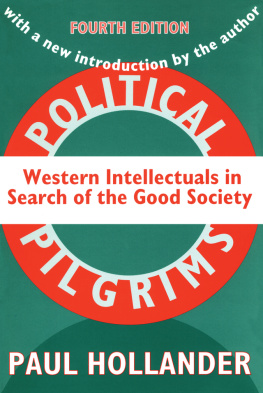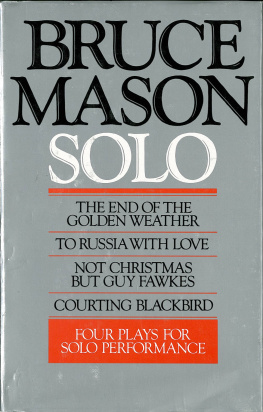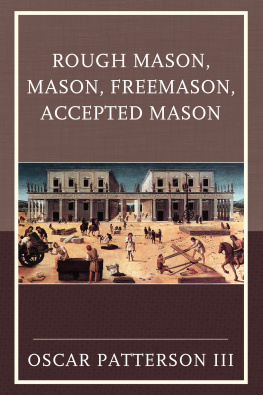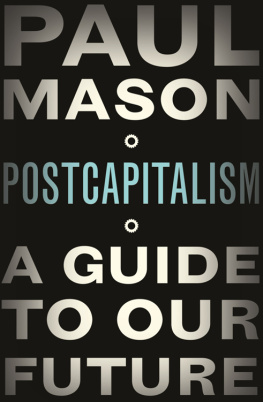Matthew T. Mason - Mechanics of robotic manipulation
Here you can read online Matthew T. Mason - Mechanics of robotic manipulation full text of the book (entire story) in english for free. Download pdf and epub, get meaning, cover and reviews about this ebook. City: Cambridge, Mass., year: 2001, publisher: MIT Press, genre: Politics. Description of the work, (preface) as well as reviews are available. Best literature library LitArk.com created for fans of good reading and offers a wide selection of genres:
Romance novel
Science fiction
Adventure
Detective
Science
History
Home and family
Prose
Art
Politics
Computer
Non-fiction
Religion
Business
Children
Humor
Choose a favorite category and find really read worthwhile books. Enjoy immersion in the world of imagination, feel the emotions of the characters or learn something new for yourself, make an fascinating discovery.
- Book:Mechanics of robotic manipulation
- Author:
- Publisher:MIT Press
- Genre:
- Year:2001
- City:Cambridge, Mass.
- Rating:5 / 5
- Favourites:Add to favourites
- Your mark:
- 100
- 1
- 2
- 3
- 4
- 5
Mechanics of robotic manipulation: summary, description and annotation
We offer to read an annotation, description, summary or preface (depends on what the author of the book "Mechanics of robotic manipulation" wrote himself). If you haven't found the necessary information about the book — write in the comments, we will try to find it.
Mechanics of robotic manipulation — read online for free the complete book (whole text) full work
Below is the text of the book, divided by pages. System saving the place of the last page read, allows you to conveniently read the book "Mechanics of robotic manipulation" online for free, without having to search again every time where you left off. Put a bookmark, and you can go to the page where you finished reading at any time.
Font size:
Interval:
Bookmark:

POLITICAL PILGRIMS
Fourth Edition
with a new introduction by the author
Western Intellectuals in Search of the Good Society
Paul Hollander

Originally published in 1981 by Oxford University Press. Preface to the 1982 edition originally published by Oxford University Press. Preface to the 1990 edition originally published by University Press of America.
Published 1998 by Transaction Publishers
Published 2017 by Routledge
2 Park Square, Milton Park, Abingdon, Oxon OX14 4RN
711 Third Avenue, New York, NY 10017, USA
Routledge is an imprint of the Taylor & Francis Group, an informa business
Copyright 1998 by Taylor & Francis.
All rights reserved. No part of this book may be reprinted or reproduced or utilised in any form or by any electronic, mechanical, or other means, now known or hereafter invented, including photocopying and recording, or in any information storage or retrieval system, without permission in writing from the publishers.
Notice:
Product or corporate names may be trademarks or registered trademarks, and are used only for identification and explanation without intent to infringe.
Library of Congress Catalog Number: 97-7925
Library of Congress Cataloging-in-Publication Data
Hollander, Paul, 1932
Political Pilgrims: Western intellectuals in search of the good society /
Paul Hollander; with a new introduction by the author.
p. cm.
Originally published: New York: Harper Colophon Books, 1981.
Includes bibliographical references and index.
ISBN 1-56000-954-3
1. Communist countriesForeign public opinion. 2. Intellectuals
JourneysCommunist countries. 3. IntellectualsPolitical activity History
20th century. 4. IntellectualsAttitudesHistory20th century.
5. Public opinion.
D850.H65 1997
306.2dc21
97-7925
ISBN 13: 978-1-5600-0954-2 (pbk)
This book is dedicated to the memory of my father, Jen Hollander
Wishful thinking has always figured in human affairs. When the imagination finds no satisfaction in existing reality, it seeks refuge in wishfully constructed places and periods... travel romances have been continually changing expressions of that which was lacking in actual life.
KARL MANNHEIM, Ideology and Utopia
Political Pilgrims was first published in hardcover by Oxford University Press in 1981; it was followed by a paperback edition by Harper & Row in 1983 and another soft cover edition by the University Press of America in 1990. Each of these printings (far from huge) were sold out.
Much has changed not only since the first but even since the most recent edition. In 1989 (when the preface for the 1990 edition was written) there was already advanced decay and turmoil in communist systems, but few predicted how close their collapse was, symbolized by the tearing down of the Berlin Wall later in the same year. Nor did I anticipate in 1989 that one year later the leftist government in Nicaragua would allow itself to be voted out of power and thereby deprive political tourists from their prime destination during the 1980s. In Ethiopia the civil war culminated in the overthrow of the exceptionally brutal Soviet- and Cuban-supported regime in 1991. The pro-Soviet regimes in Angola and Mozambique sought to make peace with the anti-Communist guerillas who controlled much of these countries. The Communist regime in Afghanistan was likewise overthrown by the anti-Soviet guerillas as Gorbachev withdrew the Soviet troops supporting it.
I noted in the 1990 preface that
for the most part the estranged, adversarial intellectuals and quasi-intellectuals in the West averted their eyes from these developments, from the resounding moral and material failures of these socialist countries. They were especially disinclined to detect any connection between the ideas and ideals of Marxism-Leninism and the sorry states of the societies that sought to implement these ideas, (p. x, 1990 preface)
This still remains the case.
By the time the Soviet Union itself fell apart in 1991 few countries remained to inspire significant amounts of political pilgrimages. Of the countries which used to be the major destinations of the pilgrims or, as I also called them, the political tourists (a more applicable term with the rise of such mass tourism, and especially in the context of Nicaragua), few remain. The entire Soviet bloc disappeared by 1991; Nicaragua ceased to inspire political tourism in the absence of a leftist government; China has increasingly allowed foreign capitalists to penetrate its economy and encouraged private entrepreneurship and consumption (although the political monopoly of the party has been retained); similar trends developed in Vietnam. Given the anti-capitalist convictions of those inclined to political tourism, their interest in these countries was bound to decline.
Cambodia under Pol Pot lost credibility back in the 1970s as soon as the Vietnamese Communist regime went to war with it. The conflict made acceptable even on the far-left the criticism of the Pol Pot regime for the massacres which were earlier doubted, or outright denied. In this context it will be instructive to recall Noam Chomsky's erstwhile remarks on this matter as he remains a sterling example, indeed archetype of the bitterly estranged Western intellectual, for now without an alternative land of social justice to promote. His last enthusiasm was Sandinista Nicaragua.
The political system of Cuba remains largely unchanged, though more impoverished, with the disintegration of the Soviet bloc and the vanishing of its steady support. What I wrote in the 1990 preface is still valid:
Cuba under Castro has retained a fair amount of support... though it has remained one of the most repressive, intolerant, militaristic and economically mismanaged of the Communist systems. It has also been a country 10% of its population preferred to leave.... Such matters were overlooked by the sympathizers, perhaps in part precisely because the Cuban regime, personified by Castro, never lost its outward self-assurance and never failed to claim moral superiority over the United States and other capitalist systems, (p. xii, 1990 preface)
Regardless of what happened to the actual pilgrimages (and whatever survives of them will be examined below), what is probably of greater significance is the mind-set which gave rise to them and which by no means has disappeared especially in the United States. It is in that direction that the justification for reprinting this study lies: Political Pilgrims may still be read with some profit (and occasional amusement) as a parable of durable alienation, or what an English sociologist called "middle class radicalism."
Regardless of the current, far more limited availability of countries upon which longings for a better world may be projected, it remains to be better understood (notwithstanding the efforts of this author) why in the first place so many Western intellectuals had been so irresistibly drawn to repressive and mendacious totalitarian systems and movements, and how they succeeded for long periods of time to overlook or downplay their morally debilitating flaws and misdeeds. Doris Lessing was among the few also preoccupied with this question and critical of the double standards associated with it. In 1987 when the Soviet Union sought to subdue Afghanistan with great brutality, she wrote:
Font size:
Interval:
Bookmark:
Similar books «Mechanics of robotic manipulation»
Look at similar books to Mechanics of robotic manipulation. We have selected literature similar in name and meaning in the hope of providing readers with more options to find new, interesting, not yet read works.
Discussion, reviews of the book Mechanics of robotic manipulation and just readers' own opinions. Leave your comments, write what you think about the work, its meaning or the main characters. Specify what exactly you liked and what you didn't like, and why you think so.











